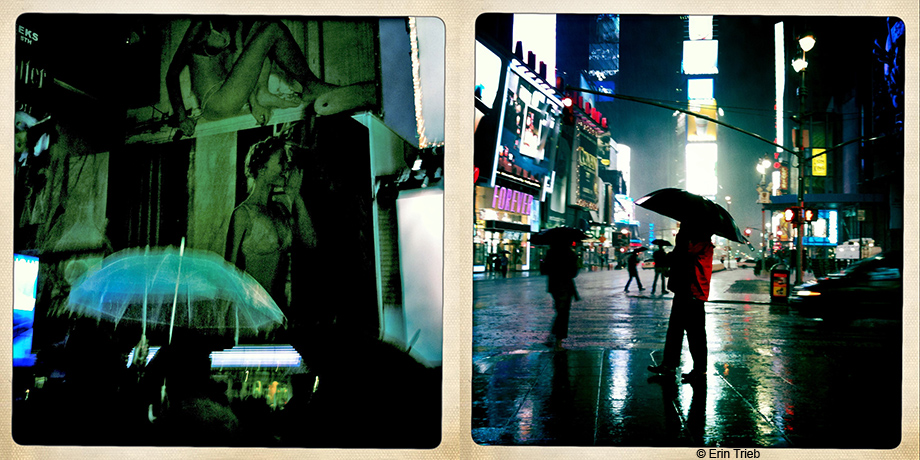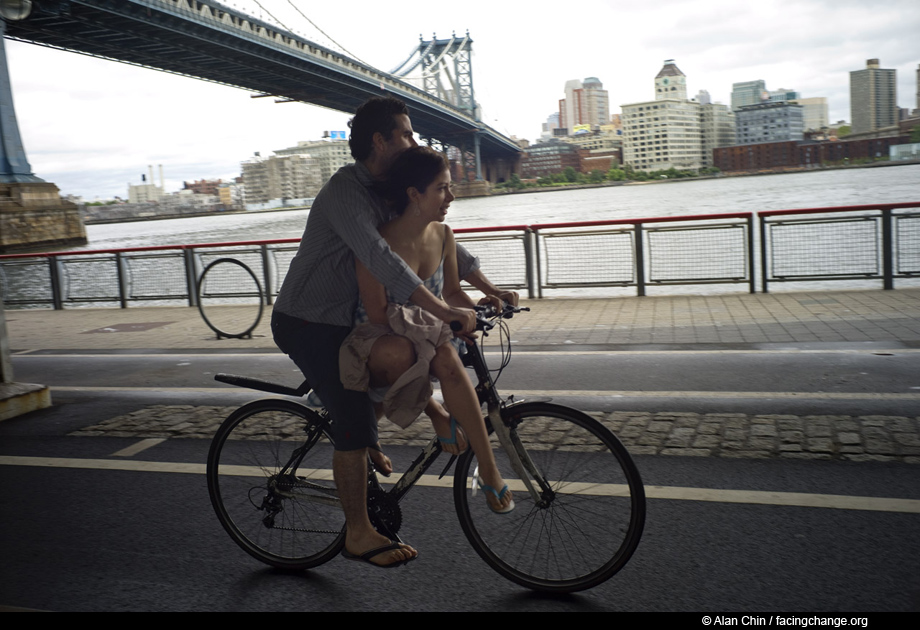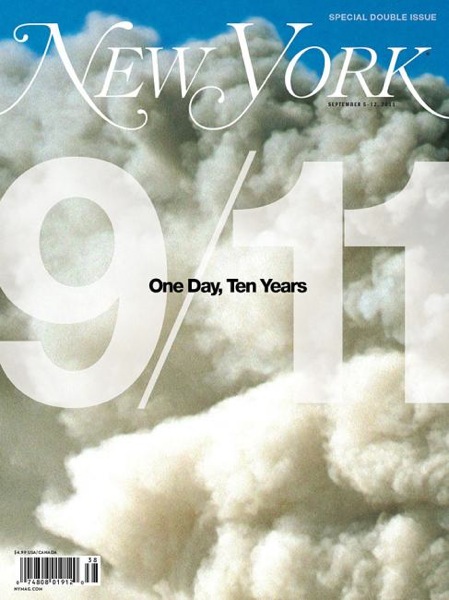Notes
Hurricane Irene: For New York City, The Storm That Wasn't

In Times Square as the storm began for New York.
With fear and apprehension of approaching Hurricane Irene, Mayor Bloomberg took the unprecedented step of ordering mandatory evacuation for more than 300,000 people living in low-lying areas of New York City. This had never happened before, not for draft or race riots, not for great fires, not for 9/11. And he preemptively shut down the entire public transit system of subways, buses, and commuter trains, a system that usually runs 24-hours a day. The city that never sleeps ground to a complete halt for two whole days. All this, for what turned out to be a mild summer tropical storm. Other areas up and down the East Coast suffered real damage. But in New York, except for some minor flooding and downed trees, “even a bottle that was on the street the night before didn’t fall over and break,” said one Brooklynite.

Along the East River under the Manhattan Bridge, afterward.
This bicycling couple, like many New Yorkers, enjoyed a relaxing and quiet Sunday rather than suffer catastrophe. Both the media, which was so instrumental in hyping up danger in advance, and government officials now offer the reassuring platitudes of “better safe than sorry” and “lessons learned after Katrina”. But while no one would deny that preparedness is critical, especially after the mayor’s poor showing last winter coping with a blizzard of snow, the exceptional precautions that were taken for Irene now seem like paranoid over-reaction with real consequences:
In our current American culture of helicopter parents, children on leashes, and hot-button litigation, this obsession with safety comes with an unspoken dark side. People given repeated warnings of disasters that fail to materialize inevitably become complacent and cynical about political ass-covering the next time. The poor and working class are inconvenienced much more than the wealthier who don’t need public transit and were able to drive anywhere in private cars. The dangers of evacuating the elderly and infirm may risk their lives more than riding out the storm. And most of all, the emotional toll of stress, lost income, and panic may lead directly to incidents like the man in North Carolina’s Onslow County who died of a heart attack as he put plywood over his windows in preparation for the hurricane.
A Lower East Side apartment building doorman who found himself stuck at his post for the whole weekend said, “I completely understand getting ready to shut down the subway if it’s necessary. But I didn’t think they would really do it for this. New York is losing what makes us special!”
–Alan Chin
PHOTOGRAPHS by ERIN TRIEB and ALAN CHIN


Reactions
Comments Powered by Disqus